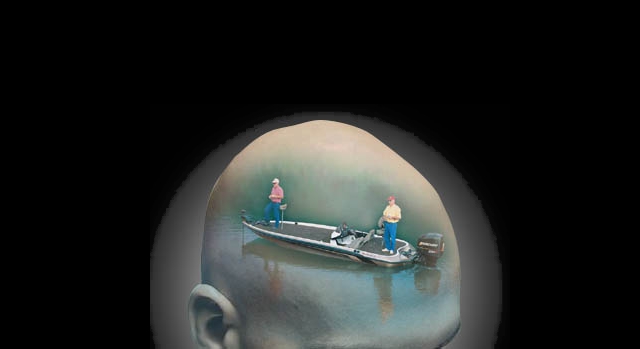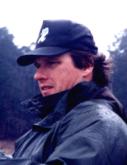Performance Psychology and tournament fishing
It’s never too late to have your best day

In the world of performance psychology, as in life, what stands out are extremes, the really good days, the spectacular events, the colossal failures. Since we are hardwired to pay most attention to negative information, errors and setbacks are generally more emotionally powerful, and their memories more long-lasting, than successes. From an adaptive standpoint, it’s clearly in our best interest to focus on, and hopefully correct or avoid, mistakes.
However, it’s all too easy to get wrapped up in things gone wrong in ways that interfere with performing in the moment. As athletes in every sport know (you know this, too!) attention and concentration in the here and now are absolutely essential for peak performance. If you want to be “in the zone” you need the mental discipline to learn from and then quickly let go of mistakes in order to focus on the next play, the next cast.
Performance psychology says letting go of the past not only frees you from the emotional burdens that often accompany mistakes, it also opens you up to all future possibilities. And that’s important because, especially in the world of fishing, what happens next could easily be you at your very best. Put another way, it’s never too late to have your best day. Here are a couple of stories which illustrate this.
Besides anglers, I work with athletes in other sports. One of my competitors, a racquetball player, sent me this e-mail.
“So, I’ve told you about this guy in my club who consistently beats me. He’s slightly better than me, but not much. What he does have is what I have worked on with you, Doc, and that is the ability to patiently wait for a good shot. He just returns the ball, calmly playing defense, while I flail away going for kill shots too much of the time. Trying to `make something out of nothing’, as you describe it, usually leads to mistakes by me or to setups for him.
“Recently, all my concentration exercises and my here-and-now focus practice paid off. When he got ahead 7-0, instead of giving up I just focused on seeing the printing on the ball, like you’ve told me, and forgetting about the score. A few minutes later I realized I had won, 15-7. I actually scored 15 points in a row, Doc! I’ve never done that before, with anyone. I couldn’t even tell you about any of the shots I made (except the last one!) during that time because I was so focused on just seeing the ball. It was just like everything I’ve ever read about being in the zone: time stood still; the game was in slow motion; and I was like oblivious to everything around me. It really was just me and the ball, and when it was all over I was less elated than I was quietly surprised.”
The kicker here is this person is way past 50, and has been playing racquetball since he was 23. It’s never too late to have your best day.
A tournament angler here in Minnesota told me a story about an event last fall.
“You know there are tons of nice fish in Lake Bill-Bob; it’s where I take people for fun fishing who don’t know how to fish because they’re likely to catch a good one. But I’ve never done well there in tournaments before. Last fall it got cold early, and almost all the weeds in Bill-Bob were gone. I had done quite a lot of practicing for this event, but I couldn’t put anything together. I finally sat down in the boat and asked myself what I needed. The answer was I needed to find healthy green weeds, because that’s where the bass usually live this time of year.
“I went back to practice casting with renewed optimism, not expecting to catch fish, but just looking for vegetation. About five hours later, my lure came back with a piece of bright green coontail weed. I changed rods, threw my favorite jig in there, and caught a 3-pounder. Doc, I gotta tell ya, it was one of the happiest moments of my fishing career; without trying to force anything, I let what I knew guide me to some fish. The following week, the bottom fell out of the thermometer, but I didn’t care; I was as calm as I’ve ever been in competition. My first fish was over 5 pounds, and I won the event, but the real highlight was the week before when I found those weeds. The whole time I was looking for green vegetation I was relaxed and focused; and I was most certainly not thinking about how poorly I had performed in other tournaments on that lake.”
This guy? He’s fished more tournaments than you and I put together. It’s never too late to have your best day.
A few weeks ago another tournament angler weighed over 30 pounds for five fish on two consecutive days on Falcon Lake. He described it as the best two competitive fishing days of his career. You may recognize his name: Rick Clunn. In August, he’ll be 67.
Learn from your mistakes; then erase them! It’s never too late to have your best day!

————————————————–
Jay T. McNamara, Ph.D., L.P., also known as Dr. Fish, has published his book “The Psychology of Exceptional Fishing.” You can order it by contacting Jay via e-mail at this address: [email protected].
————————————————–
Jay T. McNamara, Ph.D., L.P., is a psychologist, who is also an avid bass and walleye angler. With more than 28 years of professional experience complemented by participation in competitive fishing at local and national levels, he is uniquely qualified to illustrate how performance psychology principles apply to tournament fishing.